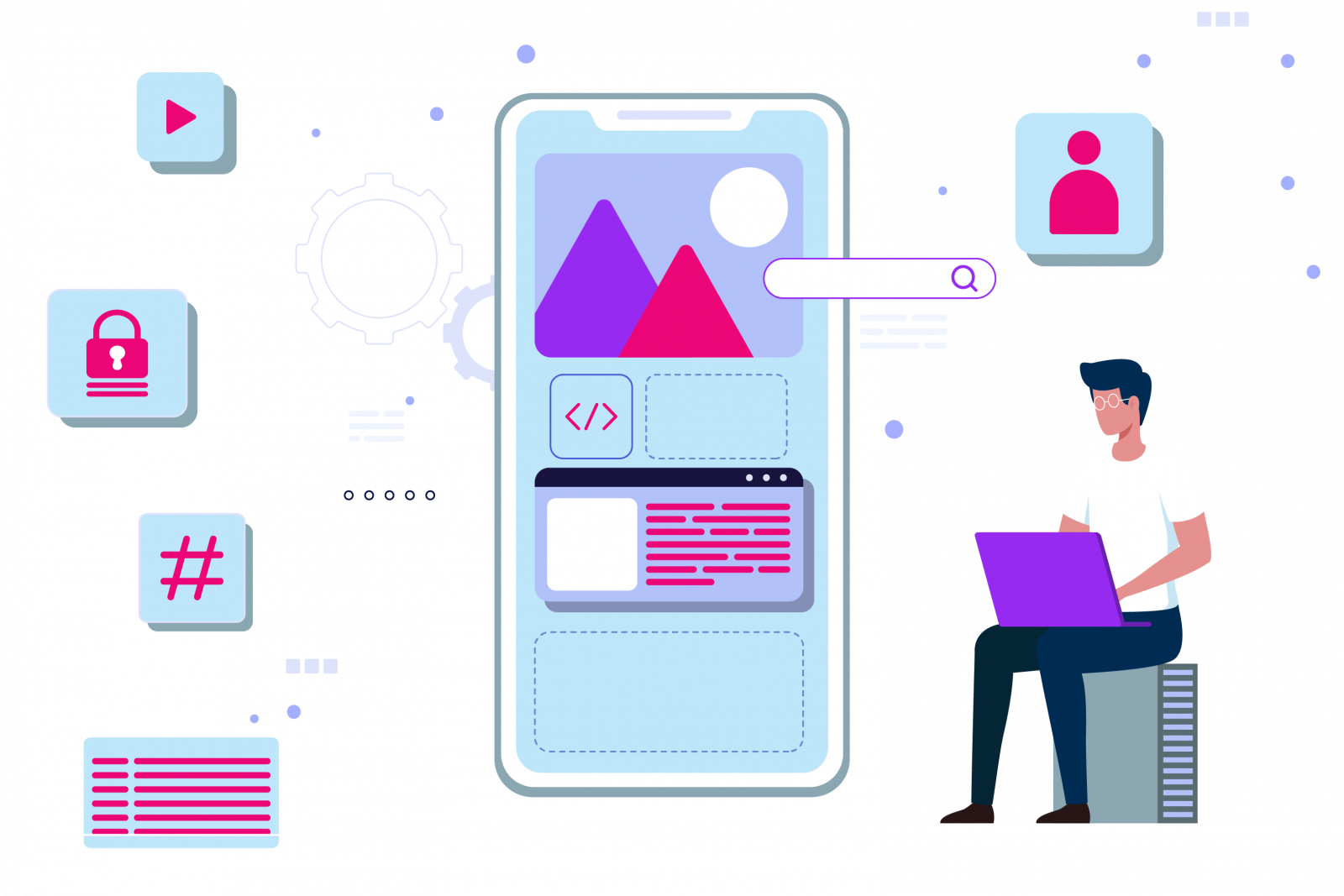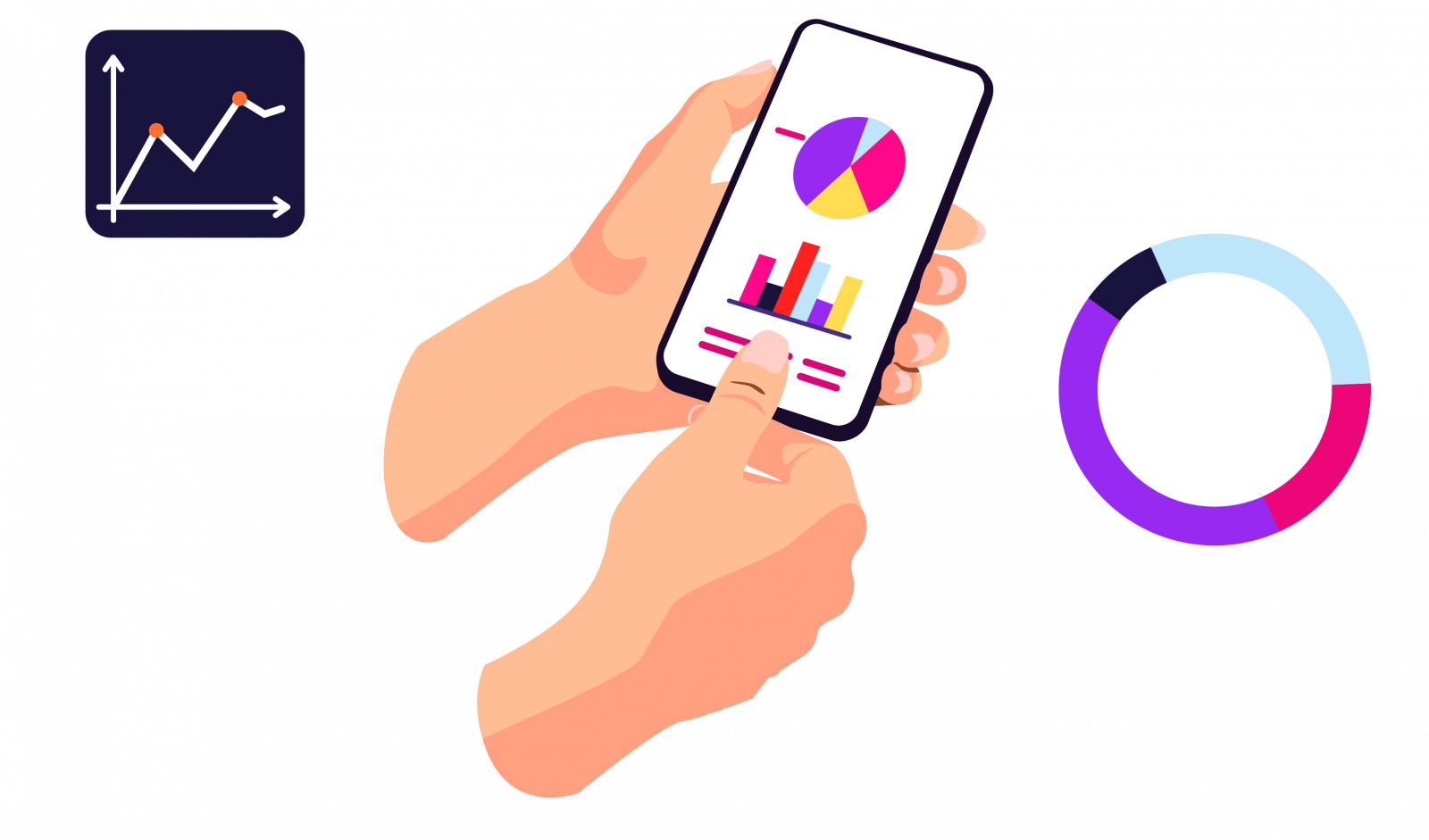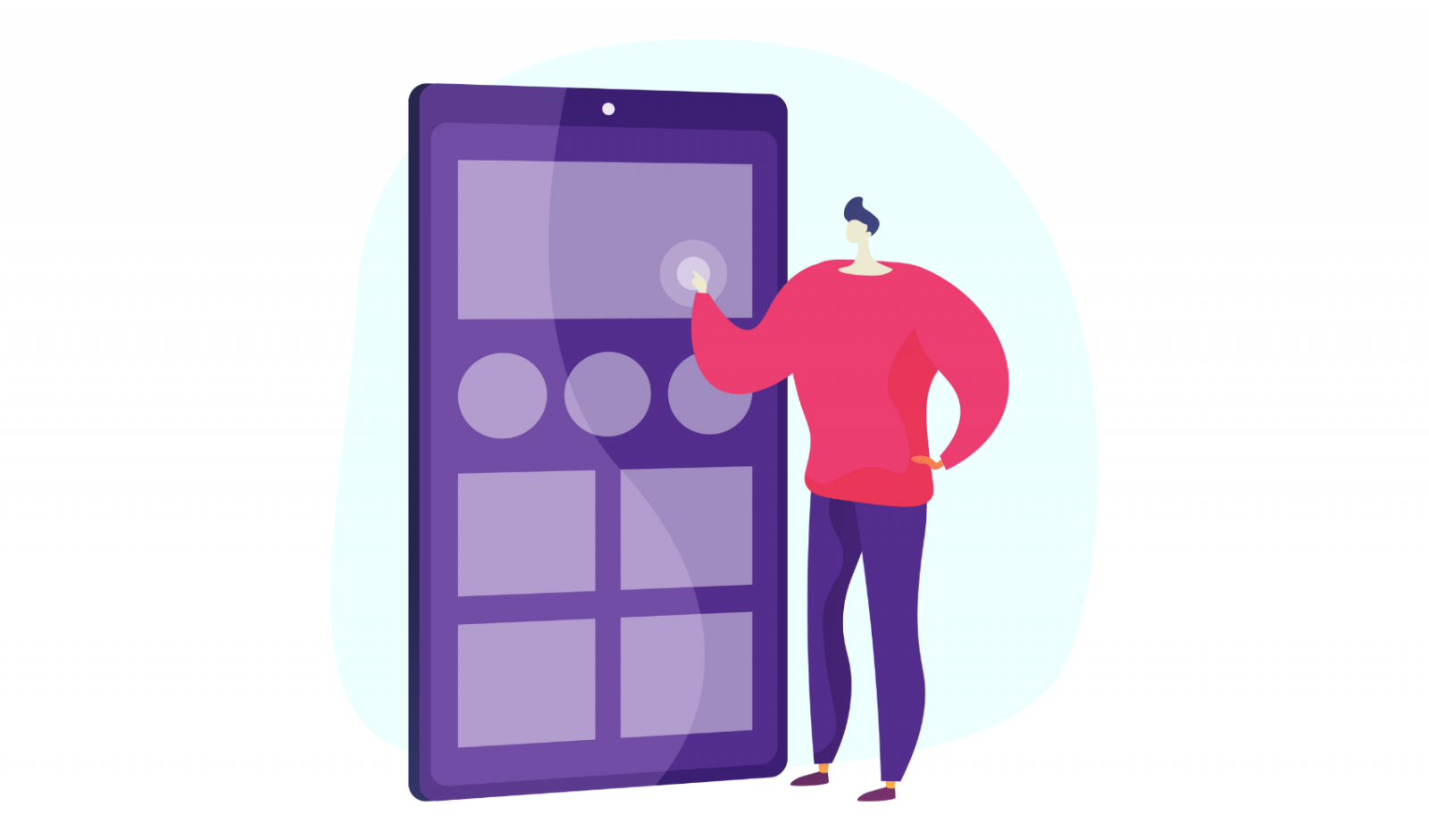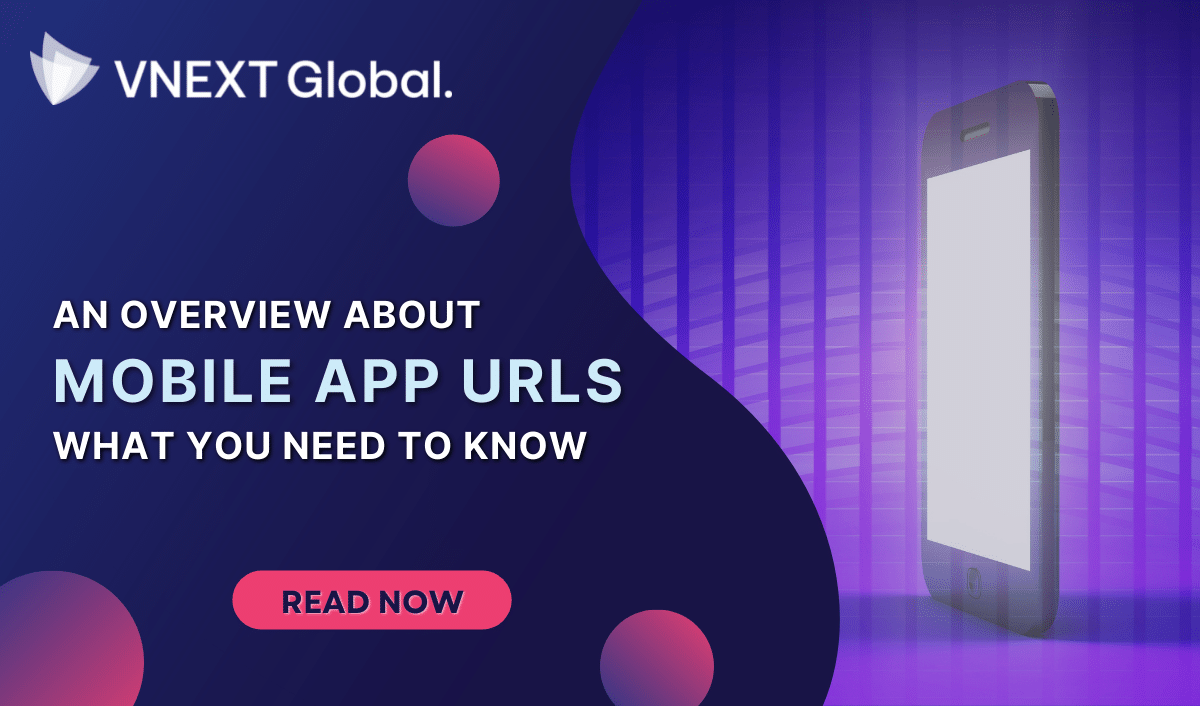When using a mobile app, people usually do not pay attention to the mobile app urls. However, like other elements of a mobile app, mobile app urls play an important role during mobile app development. In this article, VNEXT Global will provide an overview and the importance of mobile app urls.
What are Mobile App URLs?
Mobile App URLs, or Mobile App Uniform Resource Locators, make it possible to link to specific pages or screens of an app. They also allow users to link the website pages to the respective screens of the mobile app.
The importance of Mobile App URLs
By connecting and specifying many pages or screens of the mobile app, they complete the circle between the development of content, its discovery, and downloads of the app. As a result, Mobile Apps URLs provide users the option to download the app to their devices, or to click links to access content directly in the app (provided that the app has already been downloaded).
Is it possible to enter them in the address box similarly to URLs?
Nope, you can only tell/ give/ share with other people the URLs of your mobile apps. Mobile App URLs cannot be entered in the address bar since there isn't an address bar for mobile applications.
Platforms supported by Mobile App URLs?
Mobile App URLs can be used for different platforms, such as:
- iOS
- Android
- Cross-platform
The cost of Mobile App URLs
You can use Mobile App URLs for free since they are open-source.
Additionally, you can modify those URLs to fit any platforms or environments, depending on the requirements of your project or business.

How do Mobile App URLs work?
Mobile App URLs allow users to link from one app to particular screens in the same or another app. To be easier to understand, their functions are the same as website URLs.
- Mobile App URLs link to a screen inside the same app.
If you have opened the Facebook app, you can share any posts or pages with others using the messenger or chat window.
You just need to choose the option “share link via messenger”, instead of having them visit the Facebook website.
- Mobile App URLs link to a screen of another app
You may use Mobile App URLs to send a link to a post on Linkedin via Facebook Messenger. You just need to navigate to a screen, copy the URL, open the Facebook app, and paste it into your status update. When your friends visit the link on a desktop, they can see the download links for the LinkedIn app for iOS or Android.
However, they won't be able to download the program for their laptop. If users don't already have the LinkedIn app, they will be sent to the download page for that specific platform, where they may click to access the post URL.
If your friends have the LinkedIn app downloaded, and they click the link from a mobile device, they will be taken to the post URL (regardless of the mobile platforms).
Requirements for Mobile App URLs
App Links must be enabled in both the linking and the connected applications for them to function.
You can activate Mobile App URLs by creating customized Universal Resource Identifiers (URIs) for that app and using certain tags in the app's code, then the Mobile App URL may be enabled for that mobile app.
Types of Mobile App URLs
Here are some types of Mobile Apps URLs suggested by our team:
Default deep links
Default deep links direct users to an app provided that the user has already installed it. If that mobile app hasn’t been installed, the link can’t reach the endpoint of an app then an error notification will appear.
Default deep links are useful for retargeting campaigns where an app marketer is solely interested in finding users who have the app installed, and want them to return.
Deferred deep links
Deferred deep links are much more complicated than default deep links. Even if the user hasn't installed the app, deferred deep links can direct users to the App or Play Store, or to another location, such as the app’s website for more information. Then, the original page that the user was directed to will be opened.
For instance, if a user downloads an e-commerce app after clicking an advertisement for a T-shirt, but doesn’t have the app installed, they will first be routed to the store for download. When they open the app after install, the product page would be shown.
Why you should pay attention to Mobile App URLs
App Links are a little challenging, may take some time to deploy, and may take much longer to perfect, but you get so much more in return.
First of all, if visitors come across the app download link, they assist you in driving app downloads regardless of the platform. This will therefore result in an increase in your mobile app's paid app or ad income.
Enjoy the comfort and familiarity that App Links offer. Additionally, this raises the visibility of your app, which, in contrast to your website, is frequently obscured from public view.
Most significantly, because so few businesses have used App Links, they will give your app or website a unique quality. People will therefore continue to visit or download the app merely to try something new.
Construct Mobile App URLs from scratch
Use Facebook SDK to create deep links for your mobile app if this is your first time using App Links. Facebook has supplied thorough instructions, how-tos, and screenshots for implementing App Links and all the unique features. Utilizing Facebook SDK will also enable you to take use of your website's social media presence to boost app downloads and hence income.

New features of Mobile App URLs
Analytics
Mobile App URLs have capabilities built in to track and analyze how they are utilized with other apps. They can track clicks, landing pages, time, date, frequency, and other information to provide you with thorough lists and analytics graphs. You may enhance the App Links integration into your app to improve user experience or increase app income using these data. You must add lines of code on Bolts SDK, which is contained in the Facebook SDK, in order to configure Analytics for App Links. Bolts SDK cannot be supported by any other SDK but Facebook's, making it challenging to integrate this feature with other services.
Introducing External Apps
It allows users to click-through from one program to another, comparable to a function created by Tapstream for its "Deferred Links" feature. They could be directed to a landing page or screen on another app if they click on an advertisement in one app, for instance.
Problems of Mobile App URLs
- The cross-platform compatibility of Mobile Apps URLs also makes it a bit more complicated. There are 2 major mobile platforms, namely iOS and Android in the mobile app market. If you have the same app available on different platforms, you have to define platform-specific tags and make changes to code for each of your apps.
- The transition from a website to an app or vice versa is not smooth and seamless because of the obvious differences between websites and apps. All the pages in a website cannot be linked to screen in an app, as app use much less real and are extremely simplistic in nature.
- Linking to a screen from one app to a different app can also be really disruptive. For example, if a user link from the Instagram app to The Huffington Post, and he/ she use the Google account to log in to The Huffington Post, then he/ she will be taken to the Twitter app first to login, after which he/ she will be redirected to The Huffington Post app. It is also possible that users might be directed to the download link for the Google app even though it is already installed on his/ her smartphone.
- Most of the services listed here (excluding App Links) are not available to Windows Phone apps. So, there is still no way for App Links to deep link to your Windows Phone app.

Final thoughts
It seems that mobile app urls take a short time and a little effort in the mobile app development process. However, to enhance the experience of users, mobile app developers should focus on them, ensuring that “clicks” do not let users to the wrong “places”
If you are looking for a trusted IT partner, VNEXT Global is the ideal choice. With 14+ years of experience, we surely can help you to optimize your business digitalization within a small budget and short time. Currently, we have 400+ IT consultants and developers in Mobile App, Web App, System Development, Blockchain Development and Testing Services. We have provided solutions to 600+ projects in several industries for clients worldwide. We are willing to become a companion on your way to success. Please tell us when is convenient for you to have an online meeting to discuss this further. Have a nice day!












